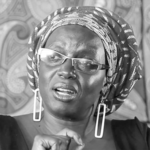
Democracy and Civil Society
The feeling that democracy is in crisis contrasts sharply with the expectations of 1991 at the end of the Cold War. At that time there was great optimism about the new times, with the promise of freedom, democracy and international cooperation.
In Eastern Europe, after the fall of Communism, in Latin America and Africa, after the fall of the Cold War dictatorships, in Turkey and even in Russia, this paved the way for democratic reforms. Democratization processes were a rapidly growing field in the social sciences. Twenty-five years later, the situation has been reversed.
The Freedom House Index 2017 and the EUI Democracy Index 2017 reveal a decrease in the number of democracies in the world. From Russia, through Turkey and the Philippines to South America, we are witnessing a weakening of democratic institutions.
In Europe, we are witnessing the success of the populist parties, which have put pressure on the traditional party system in Italy and France or have hindered government formation in The Netherlands, Sweden and Germany. In still other countries, such as Poland and Hungary, right-wing populist parties are in power, and democratic institutions such as an independent judiciary and a free press have been undermined. Belgium has not been spared this polarization.
The European Union, a project started by democratic countries that has brought peace and prosperity since World War II, has been under pressure since the Brexit referendum, while democratic government as an ideal has been profoundly damaged by the election of Donald Trump as president of the US.
It seems that democracy, here and elsewhere, has lost its efficiency and legitimacy. What are the causes and what are the possible solutions?
FELLOWS
Participants in this project:

The intention is to gather scientific insights about major societal challenges in LIAS on the basis of international and interdisciplinary consultation.






